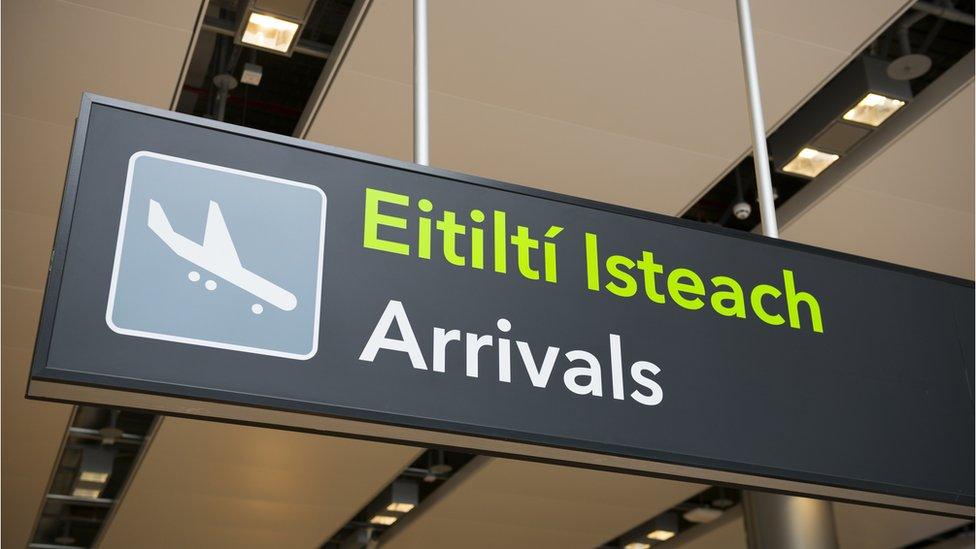Covid-19: NI to introduce international travel Covid tests
- Published
- comments
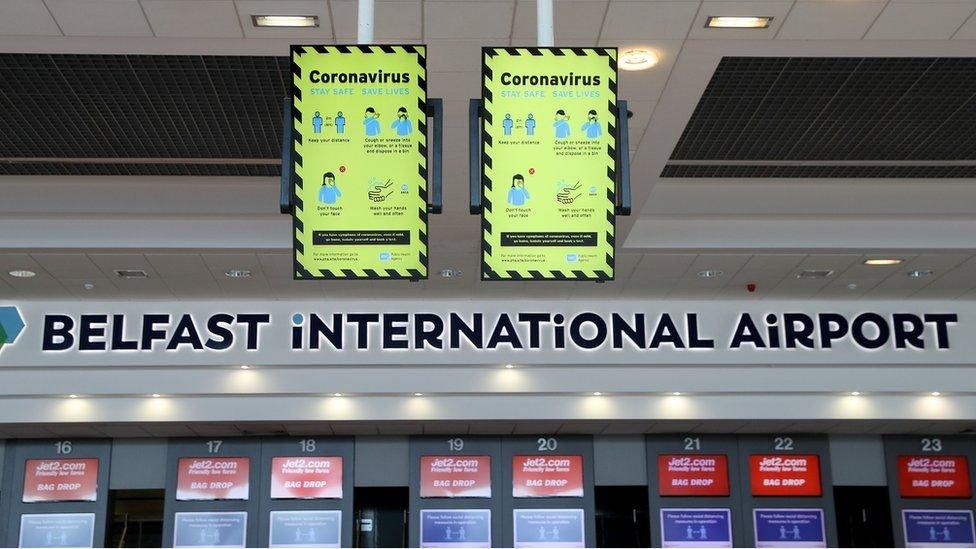
Passengers will need to provide a negative Covid-19 test taken within 72 hours before departure
Passengers arriving into NI from outside the UK and Republic of Ireland will soon have to produce a negative Covid-19 test before departure.
First Minister Arlene Foster confirmed the executive had agreed the plan on Thursday.
People arriving from countries not on the government's travel corridors list will also still have to self-isolate for 10 days.
The move has already been agreed in the Republic of Ireland.
Passengers arriving there will be subject to the new rules from Saturday, with the measure taking effect in England and Scotland from Monday.
Negative tests 72 hours prior to arrival are already a requirement in the Republic of Ireland for passengers travelling from Great Britain and South Africa.
Speaking at Stormont's press conference on Thursday, the first minister said Northern Ireland's R-number had also fallen to between 0.7 and 0.9 for new cases of the virus.
The reproductive rate of the virus - known as the R rate, measures the infection rate of Covid-19 and had risen to about 1.8 due to Christmas relaxations.
Deputy First Minister Michelle O'Neill said the drop showed the "very real" effect of lockdown restrictions imposed on 26 December, but she warned there was still "no room for complacency".
PSNI 'won't turn blind eye to rule-breaking'
She said she still believed there needed to be an "two-island approach" to travel restrictions, including discussions with the British and Irish governments as a "matter of urgency".
Mrs Foster said Stormont ministers had also expressed frustration at the executive meeting over a lack of data-sharing from authorities in the Republic of Ireland, and called for it to be escalated.
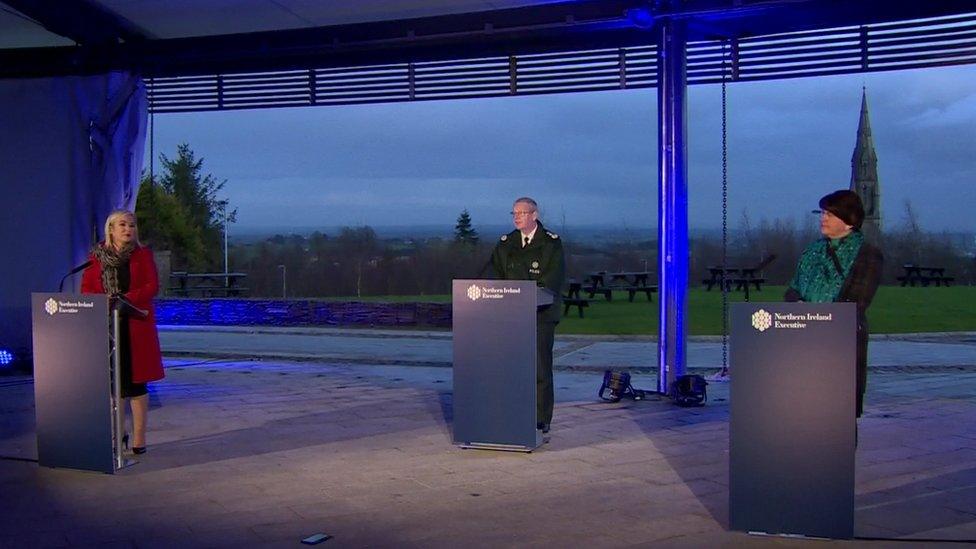
PSNI Chief Constable (centre) Simon Byrne attended Stormont's press briefing on Thursday with the first and deputy first ministers
PSNI Chief Constable Simon Byrne said 40 penalty notices a day are being handed out to those who breach the Covid-19 regulations.
He told the press briefing that if people continued flouting rules, they could expect "firm and swift enforcement".
"We won't turn a blind eye when people break the rules."
On Thursday, 16 more deaths related to Covid-19 were reported by the Department of Health in Northern Ireland, bringing its total to 1,533.
There have been 973 new cases diagnosed in the past 24 hours, while 58 Covid-19 patients are being treated in ICUs across Northern Ireland, of which 44 are on ventilators.
Mrs Foster said she found it "incredible and frankly unbelievable" that some people were still holding house parties and gatherings, despite the pandemic rates and the lockdown.
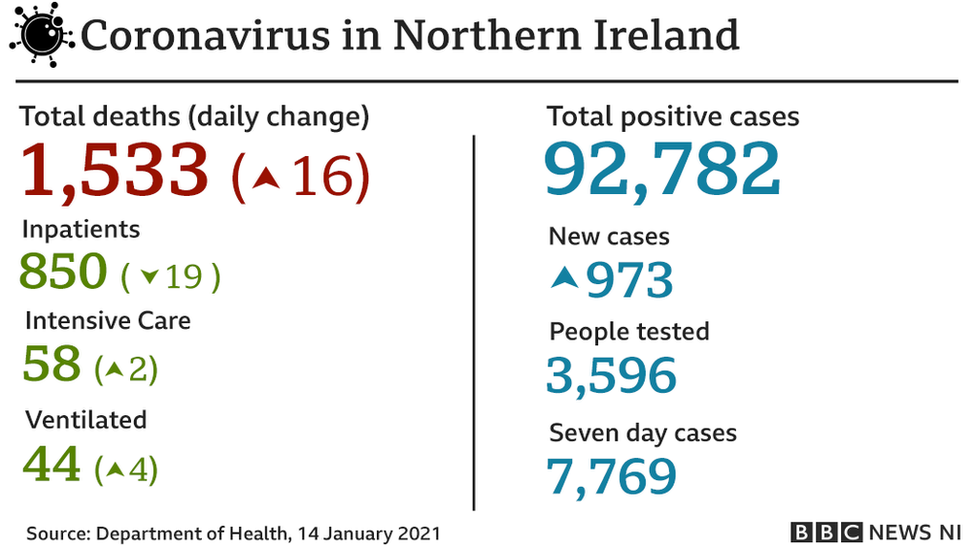
'Difficult decisions'
On Wednesday, health officials warned that levels of the new, more transmissible variant of the virus are rising.
Mr Swann said that meant more "difficult decisions" on lockdown restrictions could be required.
Northern Ireland is in the third week of a six-week lockdown to curb the spread of Covid-19.
The executive is due to review the current restrictions on 21 January.
The first and deputy first ministers said they would take evidence from health officials before deciding whether an extension of the lockdown would be required.
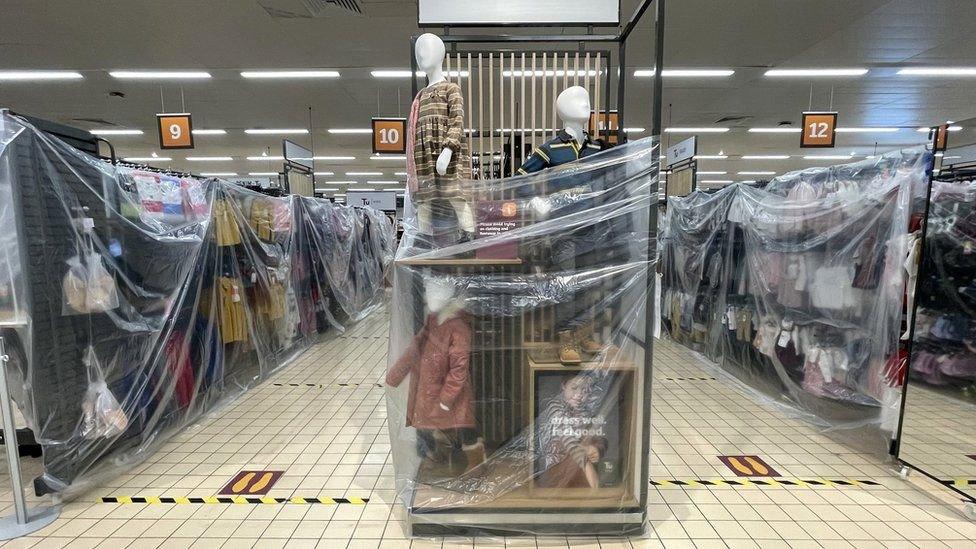
Ministers have expressed concerns about keeping non-essential parts of businesses open
Ministers have also expressed concerns about some larger retailers "gaming" the regulations and keeping open non-essential parts of their businesses.
A meeting between the first and deputy first ministers and representatives of the retail sector is due to happen on Friday afternoon.
Vaccinations
Elsewhere, the Chief Medical Officer has confirmed that unpaid carers looking after Clinically Extremely Vulnerable individuals should receive the first dose of their vaccine when phase two of the vaccination programme begins next month.
Dr Michael McBride told Stormont's Health Committee they are provided for on a list of prioritisation provided by the Joint Committee on Vaccination and Immunisation, which decides the order of vaccination delivery.
Allow X content?
This article contains content provided by X. We ask for your permission before anything is loaded, as they may be using cookies and other technologies. You may want to read X’s cookie policy, external and privacy policy, external before accepting. To view this content choose ‘accept and continue’.
Mr Swann was asked if his department was "putting all its eggs in the vaccine basket".
He said it was "not the entirety of the answer", adding: "It will take time for the benefits of it to bed in.
"And while it is doing it, we still have to follow those restrictions that are in place.
"We may actually have to introduce more."
On Thursday afternoon the department tweeted that 121,711 vaccines have been administered in Northern Ireland.
Mrs Foster said that by end of this month, it is hoped all care home residents, health staff and those aged over 80 in Northern Ireland will have received their first vaccination.
She said that would be an "incredible achievement" and make Northern Ireland one of the top-performing countries in rolling out its vaccination programme.
Enforcement
Meanwhile, the chairman of the Police Federation for NI (PFNI) has said officers need more powers to enforce Covid-19 regulations.
At present officers can only issue guidance and advice on the public health regulations.
PFNI chairman Mark Lindsay said that puts officers in a "difficult position".
The federation represents thousands of rank and file PSNI officers.
"I think we are well past the stage where police officers are the people that should be giving advice around the guidance," Mr Lindsay told BBC Radio Foyle.
- Published29 July 2021

- Published12 January 2021
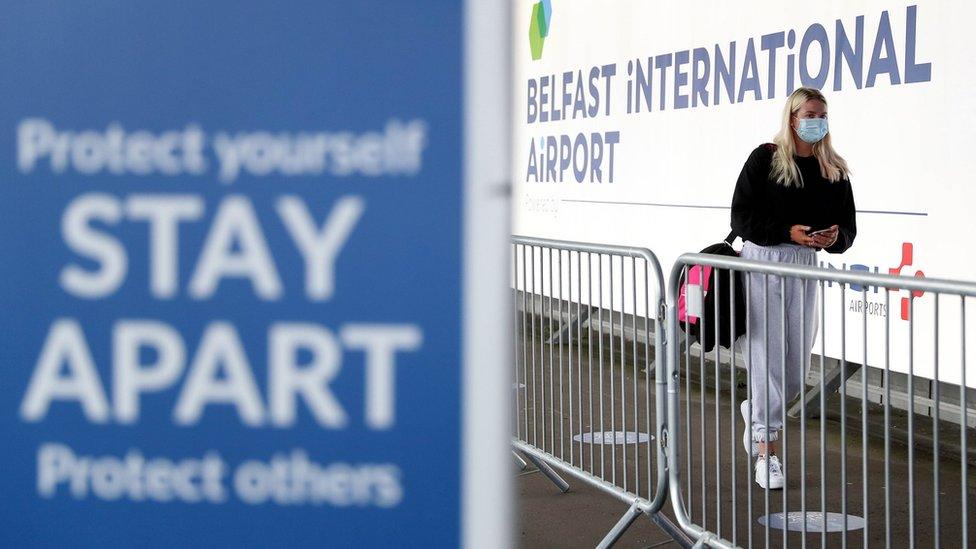
- Published13 January 2021
